Young researcher projects
The Climate Action Beacon was awarded a Youth Research Grant from the Queensland Government Department of Environment and Science to develop eight research projects as part of Griffith's Young Researcher Development Program.
This program supported 17 undergraduate students to participate in a six-month research program with academic mentors to develop foundational research skills in identified priority areas.
The outcomes of the research projects were presented at Youth Week 2023.
Project outcomes
Project outcomes
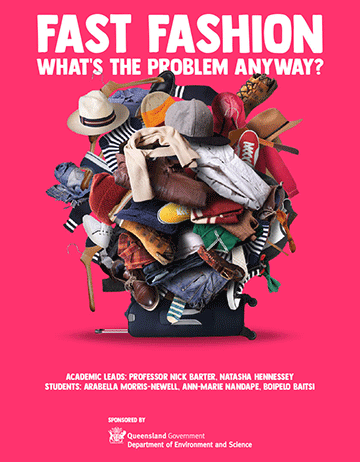
Fast Fashion: what’s the problem anyway?
This project used a literature review to investigate the fast fashion system—aiming to identify the social and environmental impacts across the fashion life cycle and determine where key pressures are felt. The project team created a system map infographic and a social media campaign. The components focused on educating young people about the scale of the impacts from overconsumption of fashion, and the intersections of environmental harm and social injustice associated with the fast fashion industry.
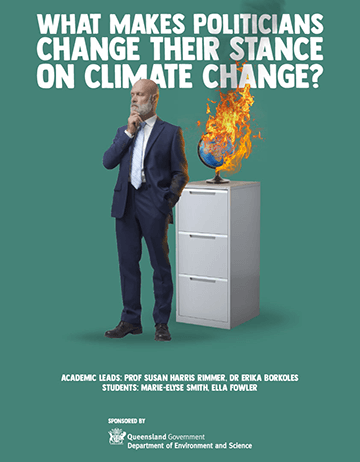
What makes politicians change their stance on climate change?
This project aimed to identify and appropriately communicate what makes high-profile individuals change their position on climate action. In doing so, the project sought to support students to work with researchers and partners to co-design and deliver a framework for engaging high profile individuals on what influenced a change in their stance on climate action.
Read moreWhat makes politicians change their stance (PDF) Watch video
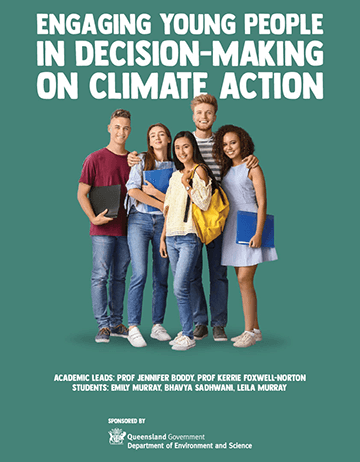
Engaging young people in decision-making on climate action
The project examined effective ways of engaging young people in decision-making on climate action and identifying their key priorities for engagement. A literature review that identified gaps in knowledge and possibilities for future research was conducted. The working paper with recommendations was submitted to government, industry and peak associations. The project then undertook focus groups and round tables with young people.
Read moreabout Engaging young people in decision-making on climate action (PDF) Watch video
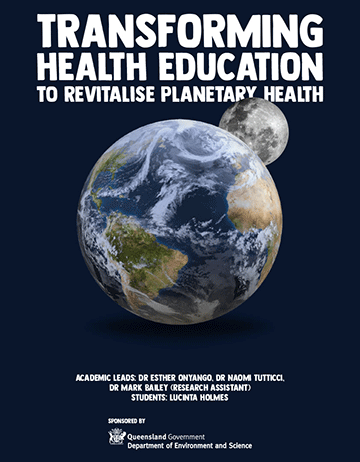
Transforming health education to revitalise planet
This interdisciplinary project aimed to transform climate change and human health education using key planetary health principles and frameworks. Through literature reviews, videos, questionnaires and presentations, the project seeks to gain a better understanding of the impacts of climate change on human health, embed planetary health approaches in education curricula and foster intergenerational leadership in climate change and health action. The project also includes future research into the use of planetary health approaches in other disciplines' curricula.
Read moreabout transofrming climate change and human health education (PDF) Watch video
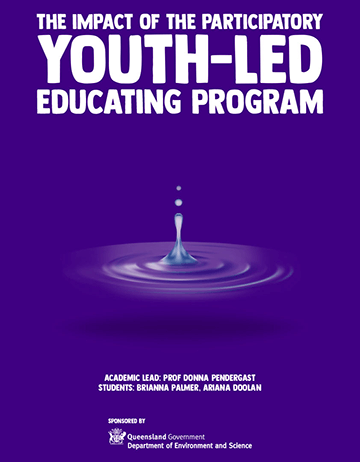
Participatory youth-led educating program
This project evaluated the impact of the participatory youth-led educating program (PYEP) on learner engagement and self-efficacy. It tracked the engagement of participants throughout the program across behavioural, social and emotional domains, as well as their reported journey of self-efficacy. The project produced a literature review, program evaluation tool, video and worked with Zero Positive for Schools to improve young people's understanding of climate change. The project's evaluation demonstrated that participants gained knowledge, confidence and understanding of complex climate change issues.
Read more about the impact of the patricipatory youth-led educating porgram on learner engagement and self-efficacy (PDF) Watch video
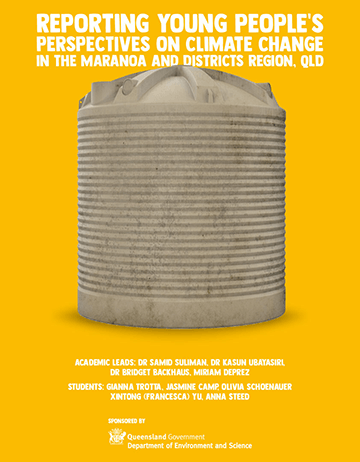
Reporting young people’s perspectives in climate change in the Maranoa and Districts region
Project Summary: This project aimed to address the marginalisation of young people's perspectives on climate change, particularly in rural and regional Australia. It sought to investigate the representation of young people's interests and perspectives in media coverage of climate change impacts in southwest Queensland and develop participatory journalism practices to amplify their voices in media discourses. The research outputs include journalism data, student-written stories, a web-based platform, academic articles on the effectiveness of experiential learning and pedagogical reflections.
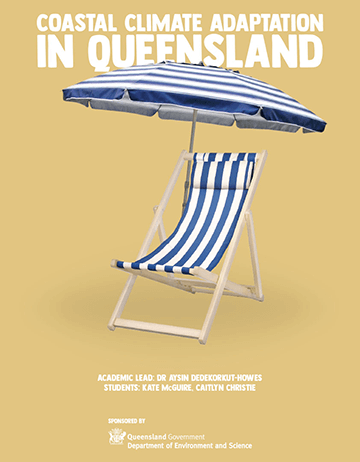
Coastal climate adaptation in Queensland
This project aimed to evaluate the effectiveness of the QCoast2100 program, which funded local governments along the Queensland coast to implement coastal hazard adaptation strategies ( CHAS ) to prepare these communities for sea level rise and coastal flooding. The project evaluated completed CHAS documents in terms of best practice coastal adaptation strategies and practices. Research outputs include an evaluation report, interview data, a journal article and a working paper on motivating climate action, future climate transitions and climate justice. The project was conducted in collaboration with the Climate Ready Initiative, which focuses on developing partnerships and projects to address climate risks and opportunities.
Read moreabout Coastal climate adaptation in Queensland (PDF) Watch video
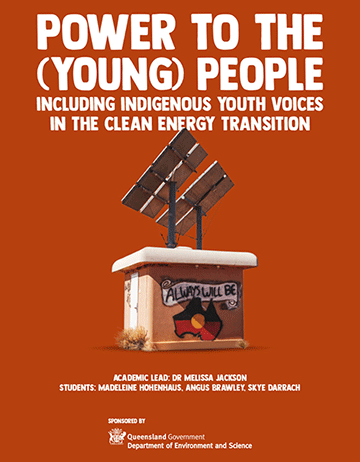
Power to the (young) people: including Indigenous youth voices in the clean energy transition
This project explored the question, How can young Indigenous people be meaningfully engaged and included in the clean energy transition in remote Australia? By drawing on lessons from broader literature on youth engagement, the team synthesised a framework for youth engagement applicable to remote Indigenous community contexts. The framework includes seven key elements that build individual capacity, are necessary supporting systems and create an enabling environment to support sustainable and sustained inclusion of young Indigenous people in the clean energy sector.
Read moreabout how indignenous people can be meaningfuly engaged in the clean energy transition (PDF) Watch video